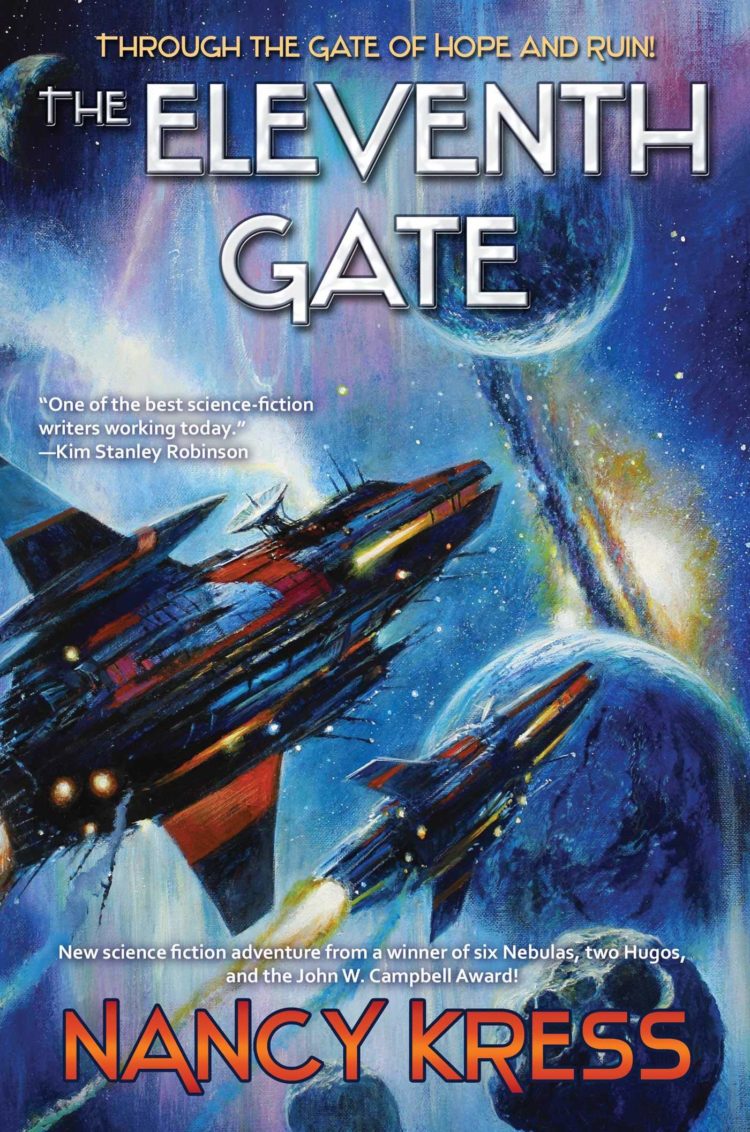With SEA CHANGE, Nancy Kress successfully renders a global-scale conflict in intimate terms
PUBLISHERS WEEKLY enjoys The Eleventh Gate by Kress.
This swift, political story proves a rip-roaring diversion.

Paul Semel, on his eponymous site, interviews Kress about the novel.
Let’s start with an overview of the plot: What is The Eleventh Gate about, and when and where is it set?
The Eleventh Gate is set in the future across the Eight Worlds, which are connected by stargates. The gates were discovered by accident just as Earth was entering its final climate-change and ocean-pollution death throes. There are ten gates connecting eight planets (some planets have two), all orbiting unobtrusively and fairly close in. Nobody knows who (or what) built them, how they function, or why they connect only planets (with one exception) hospitable to human life. But since their discovery a few hundred years ago, those who could afford it have fled Earth and established various forms of government on the extraterrestrial worlds. These planets trade with each other, but exist in an uneasy state of tension. Humans always want more than they have: more power, more territory, more resources.
Then an eleventh gate is discovered, and what lies behind it shatters that fragile balance of power. Not just because it leads to war — which it does — but because the gate changes what humanity thinks about the nature of the cosmos itself.
